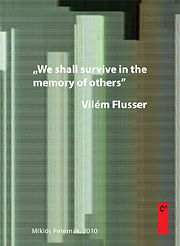
I just submitted a proposal to do a psychogeographic project for the 01SJ Biennal 2010 in which Kinshasa will be superimposed on San Jose using public projections, both mobile and stationary, performances/rituals and a variety of other mobile media tricks. What follows is some of the text from the concept proposal.
The title of this work "Congo Confluence" is a reference to the Congo Conference of 1884-1885 at which the European powers divided Africa into the nations we know today. This work addresses a core issue not only in Digital Media but also in globalization as a whole. This is a work in which technology is used to open a window of human access to the black box of the economic relations which already intimately connect them across the the world.
This is a work about about the materiality of digital media, the cellphones and other portable devices, laptops, built-ins and wearables. The layer of digital media which is coming to spread over every surface is not news, from media theory to industrial design this has been an exciting topic for at least a decade, however, what is not discussed, is that this information conveying layer is also a physical, material one, and that many of these materials are won from the earth under conditions which would be unacceptable to any contemporary humanist.
My point is that the idealism inspired by increasingly tiny and mobile technology is simple vanity unless it is counterbalanced with an earnest acknowledgement of the material circumstances of the technology's production. Despite all our relative wealth and security, we continue to look at the rest of the world and even each other with fear and trepidation. Increasingly it seems weapons and defence uses dominate technology research. Why? because there is injustice in the materials of our technology. It is hoped that a rapprochement with this fact will bring about more humanizing and valuable use and discussion of the state-of.-the-art technology.
It is a painful fact that the 10-year war in the DRC (Democratic Republic of Congo) is largely the result of various militias and the corrupted DRC army vying with each other for control of Coltan, Cassiterite, Niobium and other minerals vital to producing the very smaller electronic components which make our state-of the-art. By some reports, these 'conflict minerals' have resulted in the deaths, rapes and orphaning of over six million people. Every developed country, their corporations and their "aid" agencies is involved in this sorry state of affairs. The DRC, mineralogically, one of the wealthiest countries in the world, is one of the poorest. Kinshasa, the capital has less than 3 hours of electricity per day.
Nevertheless, just as it does here, life in the DRC goes on. Markets open, and people go to work and try to make a living, a career, a future. Kinshasa, over 1000 miles from the mineral-death-rich Kivu provinces, is a bustling metropolis with a thriving music industry and burgeoning contemporary art scene.
Now I know psychogeography is so y2k, and, in the early days of locative media, everybody started quoting deBord and getting big grant money for projects which largely either flopped or were no more than prototypes for industrial products which arrived on the scene 24 months later. And now that Israeli army is using deBord to blast new trajectories through people's houses in Gaza, its seems his pedigree as a leading light for radical emancipatory digital practise has become almost irredeemable.
But psychogeography can help us understand what it is like to live somewhere else without actually travelling there. Seoul's Flying City's 2003 project, mapping (for Koreans) inaccessible Pyongyang onto Seoul, had a strong resonance. So, too, I believe will the current proposed project of mapping Kinshasa onto San Jose and extending the map eastward to scale so that the eastern frontier of Congo, the aforementioned Kivu provinces so drenched in blood and hardship, the regional capital Goma, will be found right next to Denver CO.
Layering the thriving culture of today's DRC with all its hope intermingled with the reverberations of extreme injustice and pain on the relatively sedate surfaces of today's America should produce some powerful effects and, it is hopes, engender much valuable discussion and long-term exchange between the two places so tied by economic binds, to mitigate the injustice that eats away at our satisfaction with the accomplishments of the technological age.












